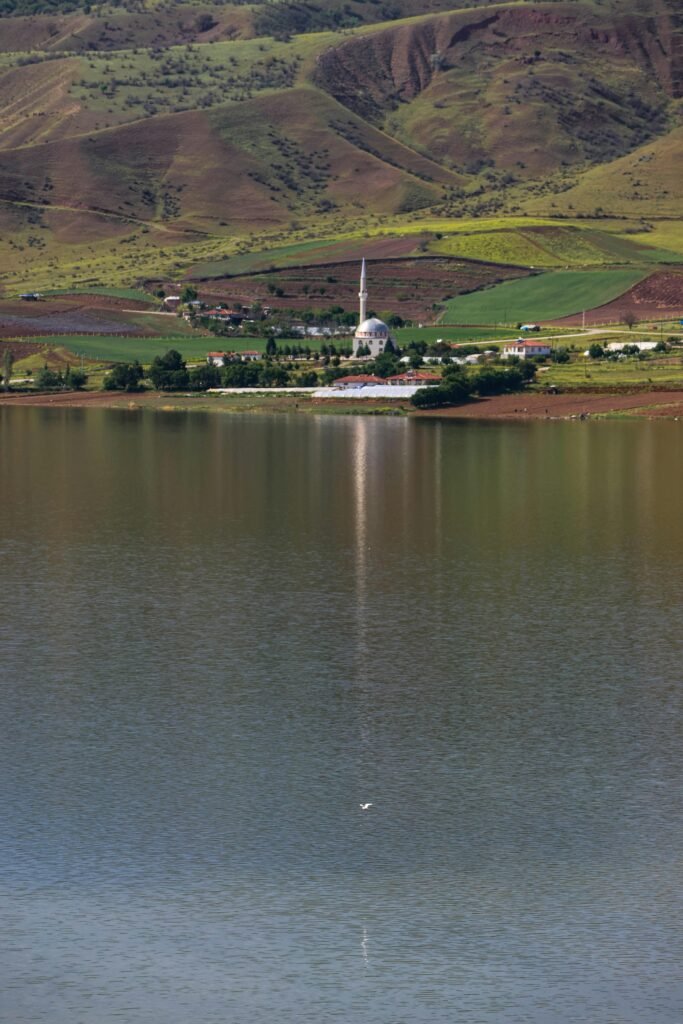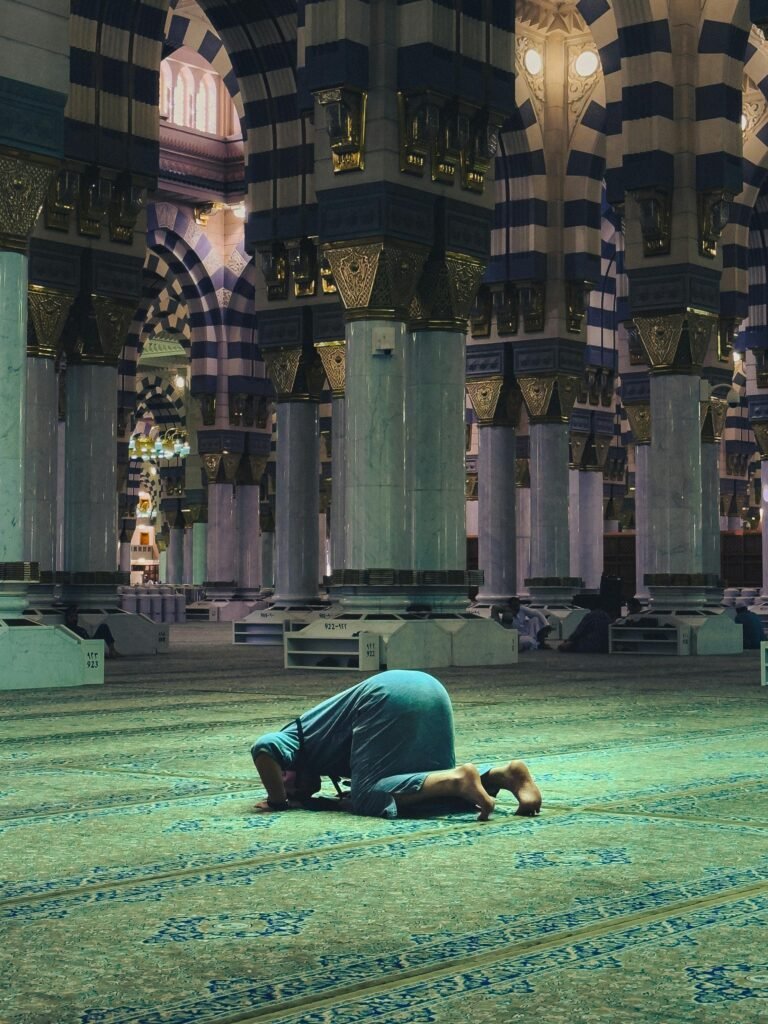
In today’s fast-moving world, Islamic News has evolved to reflect both the tradition and the modern transformation of Islam. The spread of technology and the internet has revolutionized how Muslims access and learn about their faith. This blog will explore how the modern system of learning Islam online is reshaping Islamic education, enriching the global Muslim community with authentic and accessible Islamic Information.
We will discuss the essentials of Islam, what the Islamic religion teaches, important historical contexts like Islamic History and the Islamic Hijri calendar, and key celebrations such as the Islamic New Year and Eid. Additionally, this post will explain the spiritual practices of Roza (fasting) and Salah (prayer), highlighting how modern tools aid Muslims in fulfilling their religious duties with ease and understanding.
Understanding Islam: The Foundation of Faith
At the heart of every piece of Islamic News is the core understanding of Islam itself. Islam is a monotheistic religion based on the belief in one God, Allah, and the acceptance of the Prophet Muhammad ﷺ as His final messenger. The word “Islam” means submission or surrender to the will of Allah, encompassing a complete way of life that guides moral, spiritual, social, and legal principles.
The teachings of Islam are preserved in the Holy Quran, regarded as the unaltered word of God, and the Sunnah—the sayings and actions of the Prophet Muhammad ﷺ. Together, these sources form the basis of Islamic Information that Muslims worldwide follow to lead righteous and purposeful lives.
What Is the Islamic Religion?
The Islamic religion is not only a faith but a comprehensive code that addresses every aspect of life. It calls upon Muslims to uphold justice, kindness, and humility. Islam teaches that worshipping Allah sincerely brings peace to the heart and harmony to society.
This religion’s universality has inspired billions for over 1400 years. It emphasizes five key acts of worship known as the Five Pillars, which include faith declaration (Shahada), prayer (Salah), fasting during Ramadan (Roza), charity (Zakat), and pilgrimage (Hajj). These pillars build the spiritual foundation and unite Muslims globally, and their importance often features prominently in Islamic News coverage.
Islamic History: A Legacy of Faith and Knowledge
No discussion about Islam is complete without reflecting on Islamic History. The story begins in the 7th century CE in the Arabian Peninsula. The life of Prophet Muhammad ﷺ is the cornerstone of this history, during which the message of Islam spread rapidly despite great opposition.
Following the Prophet’s passing, the era of the rightly guided Caliphs expanded the Muslim empire across continents, encouraging learning, culture, and social justice. The development of Islamic civilization gave birth to a golden age, marked by advancements in science, philosophy, art, and governance.
Islamic News frequently sheds light on this rich history, reminding Muslims of their heritage and the values that should continue to guide them in the present and future.
The Islamic Hijri Calendar and Its Significance
The Islamic Hijri calendar is a lunar calendar beginning with the Hijra—the migration of Prophet Muhammad ﷺ from Mecca to Medina in 622 CE. This event marks the starting point of Islamic timekeeping.
Unlike the Gregorian solar calendar, the Hijri calendar has 12 lunar months totaling about 354 days, causing Islamic dates to move through the seasons over time. Key months such as Ramadan (the month of fasting) and Dhul-Hijjah (the month of pilgrimage and Eid al-Adha) are determined according to this calendar.
Keeping track of these dates is crucial for Muslims, and Islamic News plays a vital role in announcing and explaining the observances related to the Hijri calendar, ensuring that believers worldwide stay connected to their faith’s rhythm.
The Islamic New Year: A Time for Reflection
The Islamic New Year (also called Hijri New Year) marks the beginning of a new year on the Hijri calendar. It is a moment for Muslims to reflect on the passage of time and renew their spiritual intentions.
Unlike many cultures that celebrate the New Year with festivals, the Islamic New Year is generally observed with prayers, remembrance of the Hijra, and contemplation of one’s life and relationship with Allah. It is a solemn occasion that Islamic News often highlights to inspire renewed faith and commitment among Muslims.
What Is Eid? Celebrating Joy and Sacrifice
Eid is one of the most joyous and spiritually significant celebrations in the Islamic calendar. There are two major Eids: Eid al-Fitr and Eid al-Adha.
- Eid al-Fitr marks the end of Ramadan, a month of fasting, prayer, and spiritual purification. It is a time of communal prayer, feasting, giving charity (Zakat al-Fitr), and expressing gratitude to Allah for the strength to complete the fast.
- Eid al-Adha commemorates Prophet Ibrahim’s unwavering obedience when asked by Allah to sacrifice his son as a test of faith. Muslims around the world perform the ritual sacrifice of an animal and distribute meat to the needy, symbolizing charity and submission to Allah.
Islamic News covers these events extensively, sharing stories of celebration and lessons of faith that uplift the hearts of Muslims worldwide.
What Is Roza and Salah? The Pillars of Worship
Two of the most fundamental practices in Islam are Roza (fasting) and Salah (prayer). These acts shape a Muslim’s daily spiritual discipline and connect them directly with Allah.
- Roza (Fasting): Observed during the holy month of Ramadan, fasting involves abstaining from food, drink, and other physical needs from dawn until sunset. Beyond physical restraint, it encourages self-purification, empathy for the less fortunate, and spiritual growth.
- Salah (Prayer): Muslims perform five daily prayers facing the Kaaba in Mecca. Prayer is the essence of worship and a reminder of Allah’s constant presence. Each Salah includes verses from the Quran and specific physical postures expressing humility and devotion.
Modern technology helps Muslims learn the correct ways to perform Roza and Salah through online tutorials, live classes, and mobile apps. These tools bring Islamic Information to the fingertips of believers around the globe.
The Rise of Learning Islam Online: A Modern Revolution

In recent years, the world has witnessed a revolution in how Islamic knowledge is shared and learned. The modern system of education has expanded beyond traditional madrasas and mosques to encompass online platforms offering courses, lectures, and certifications.
This change has been accelerated by the need for accessible Islamic learning in non-Muslim majority countries and for Muslims living in remote areas. Online learning offers flexibility and a vast range of topics—Quranic sciences, Fiqh (Islamic jurisprudence), Arabic language, and Islamic history.
Islamic Rules often reports on this digital transformation, highlighting initiatives by scholars and organizations working to maintain authenticity and provide quality education in a virtual environment.
Benefits of Learning Islam Online
Online Islamic education comes with several powerful advantages:
- Accessibility: Students from any location can access qualified teachers and authentic resources without geographical constraints.
- Flexibility: Learners can study at their own pace, fitting lessons around their daily responsibilities.
- Diversity of Courses: From beginner to advanced levels, students can explore many fields of Islamic knowledge.
- Community Connection: Online forums and live classes foster interaction and support among global Muslim communities.
- Preservation of Tradition: Digital archives and recordings help preserve centuries-old Islamic teachings for future generations.
The availability of such platforms means Islamic News is no longer confined to newsprint or television but extends into real-time educational experiences.
Challenges in Online Islamic Education
Despite its many benefits, online learning faces some challenges:
- Authenticity: Ensuring that courses and materials come from qualified scholars to prevent misinformation.
- Digital Divide: Access to reliable internet and technology is still limited in some parts of the Muslim world.
- Engagement: Maintaining students’ focus and motivation without physical classroom environments.
Efforts are ongoing to address these issues, and Islamic News frequently covers these conversations, encouraging community-driven solutions.
The Role of Islamic News in Today’s World
Islamic News serves as a bridge, connecting Muslims worldwide with timely information, educational resources, and spiritual guidance. By reporting on the advancements in online learning and modern educational systems, it helps preserve the sacred legacy of Islam while embracing the opportunities of today’s technology.
With an emphasis on positive, uplifting content, Islamic News nurtures a sense of unity, faith, and purpose among Muslims everywhere.
Conclusion: The Bright Future of Islamic Learning
The merging of faith and technology marks a new chapter in the story of Islam. As Muslims seek knowledge and spiritual growth, online platforms offer the promise of accessible, authentic, and comprehensive Islamic education.
The role of Islamic News in sharing this transformation cannot be overstated. By highlighting the progress, challenges, and inspiring stories from the global Muslim community, it fosters a deeper understanding and stronger connection to Islam.
Learning Islam online is not just a convenience; it is a powerful tool that continues the timeless mission of spreading truth, compassion, and enlightenment values at the very heart of the Islamic religion.
